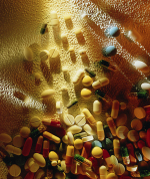Hallucinogens and Club Drugs

Hallucinogens are a class of drugs that alter moods, thoughts, and senses such as hearing, sight, touch, and smell. They include drugs such as PCP, LSD, ecstasy, and ketamine. These drugs overload the brain's sensory controls and cause a user to hallucinate. They impair judgment and reasoning and increase heart and respiratory rates. While hallucinating, users may harm themselves or violently harm others.
Club drugs include "designer drugs" such as ecstasy, GHB, and rohypnol. These drugs are designed to imitate the effects of hallucinogenic drugs and other drugs. These drugs, often used at much greater doses than the hallucinogens they imitate, can cause confusion, depression, paranoia, psychosis, paralysis, and long-term brain damage. Overdoses are common, which can lead to death.
Synthetic drugs. According to the National Institute on Drug Abuse, "Spice refers to a wide variety of herbal mixtures that produce experiences similar to marijuana (cannabis) and that are marketed as "safe," legal alternatives to that drug. Sold under many names, including K2, fake weed, Yucatan Fire, Skunk, Moon Rocks, and others — and labeled "not for human consumption" — these products contain dried, shredded plant material and chemical additives that are responsible for their psychoactive (mind-altering) effects" ("K2/Spice", n.d., para. 1)."
The following links provide add more information, including the history of synthetic these drugs, that you can use for the assignment related to this topic:
- Article: Emerging Trends
- Article: Synthetic Drugs (K2, Bath Salts)
- Article: K2 - Spice (synthetic marijuana)
- Article: What is Spice? The Facts on Synthetic Weed
- Article: Drugs of Concern - Kartom
Reference:
K2/Spice (“Synthetic Marijuana”) | National Institute on Drug Abuse. (n.d.). Retrieved from: http://www.drugabuse.gov/drugs-abuse/k2spice-synthetic-marijuana